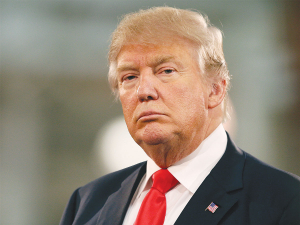New Zealand's dairy industry is right to call out Donald Trump over the damage the additional 15% tariff the US is imposing on our exports but also imposition on lower tariffs on our competitors.
This will likely have the effect of completely skewing the international dairy market to our detriment.
It's clear that the Trump administration doesn't care about NZ or anyone else, be they friend or foe. They are simply focused on a blanket policy plank that they as righting the wrongs of the rules-based trade system embodied in the WTO. Such self-interest has long been a feature of American politics and from time to time it has used its economic power to its advantage.
As a tiny country we have little real power in this whole debate and can only sit in the cheapest seats of the auditorium and see what plays out. We can hope that rational arguments have a place in the uncertain and strange geopolitical environment that we live in. But while we know that common sense no longer applies, maybe also logic and loyalty are now things of the past.
If this was only US vs. NZ, maybe we could live with the 15% tariffs, but it's consequential and unpredictable flow-on effects that are worry.
Under the auspices of the WTO, NZ at least could voice its concerns and, through the rules of that organisation, make progress on dairy access like it has just done with Canada. But with Trump there is no consensus or consultation on the rule making, no real appeal process, and that uncertainty is the only certainty.
In previous trade hiccups that NZ has encountered, diversification has always been an option, but the global effect of the US tariff policy has been to economically de-stabilise many of these markets.
Read More:
The focus of NZ now surely must be to produce high quality competitively priced products and hope for the best.











